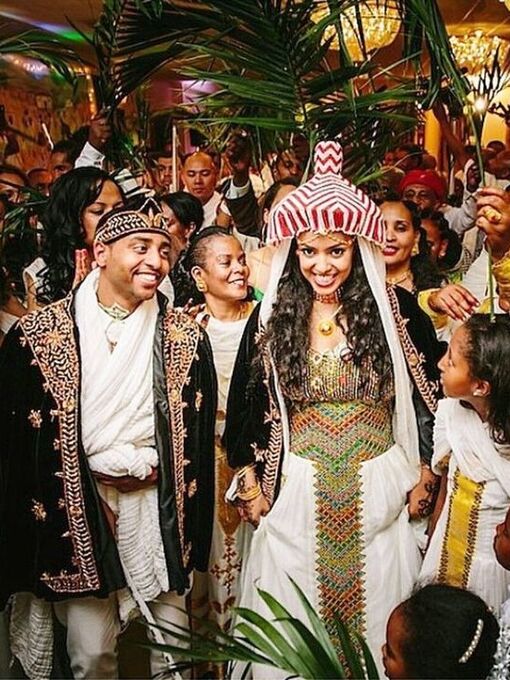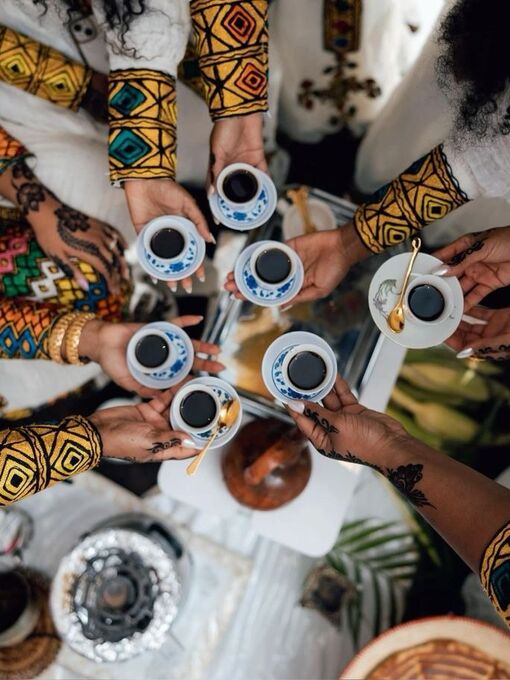
Kayla & Nathan

Kayla & Nathan
What is a Habesha Reception
A Habesha reception is a gathering within the Ethiopian and Eritrean communities, that is rich in cultural traditions and practices. A Habesha reception typically consists of:
1. Warm Welcome and Greetings
-Hospitality: Guests are usually warmly welcomed by the hosts. Hospitality is a cornerstone of Habesha culture.
-Traditional Greetings: These often include multiple kisses on the cheeks and a bow while shaking hands.
2. Traditional Attire
-Habesha Kemis: Women often wear traditional white dresses called "Habesha kemis," which are embroidered with colorful designs.
-Kuta and Gabi: Men might wear white shawls or wraps known as "kuta" or "gabi."
3. Coffee Ceremony
-Bunna: The traditional coffee ceremony, or "bunna," is a central part of social gatherings. It involves roasting green coffee beans, grinding them, and brewing them in a special pot called a "jebena."
Incense: Frankincense is often burned during the ceremony, adding to the ambiance.
-Popcorn and Snacks: The coffee is usually served with popcorn or traditional bread.
4. Food
-Injera: The staple food, a sourdough flatbread called "injera," is served with various stews known as "wat."
Doro Wat and Tibs: Common dishes include "doro wat" (spicy chicken stew) and "tibs" (sautéed meat).
-Shared Eating: Meals are communal, often eaten from a shared platter, emphasizing community and togetherness.
5. Music and Dance
- Eskista: Traditional Eritrean dance called "eskista" involves rhythmic shoulder movements.
6. Cultural Traditions
- Toasts and Speeches: Elders and respected members of the community might give speeches or toasts.
- Gift Giving: It’s common to bring gifts for the hosts, often practical items or culturally significant tokens.
7. Socializing
- Storytelling and Conversations: Guests engage in lively conversations and storytelling, reinforcing social bonds.
- Networking: These gatherings also serve as opportunities for networking and community support.
Overall, a Habesha reception is a vibrant, communal event that highlights the rich cultural heritage and values of hospitality, family, and tradition in Ethiopian and Eritrean societies.


